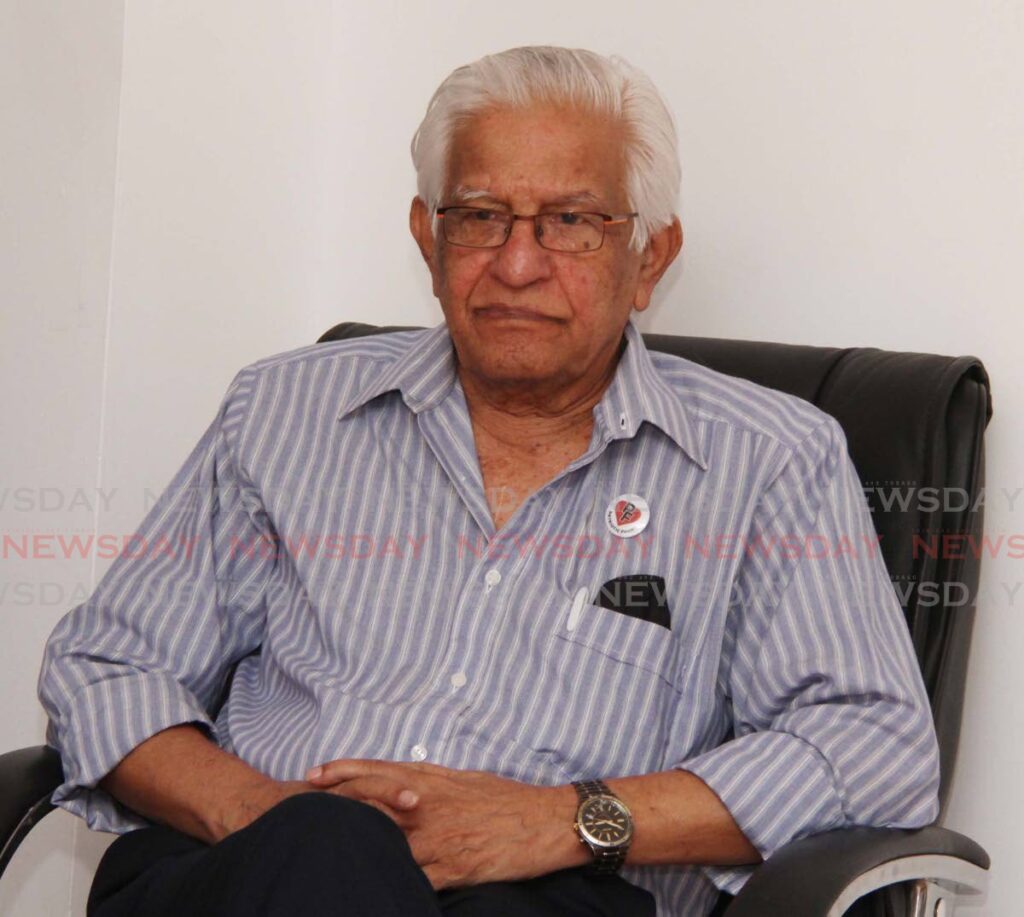Praying for Panday’s mantra of constitutional reform

CHANDRADATH MADHO
THE PASSING of Basdeo Panday, former prime minister, has prompted reminiscence about his accomplishments as a lawyer, trade unionist and parliamentarian. However, Panday’s daughter Mickela reminded journalists that her father wished for the country to achieve constitutional reform. He criticised the nature of the current Constitution that props up Westminster institutions like the bicameral Parliament and the first-past-the-post election structures. He viewed these tools as inefficient and indirectly preserving the status quo of two main political parties. I wholeheartedly support Panday’s call for constitutional reform and examine a few of his central propositions below.
Firstly, Panday premised that there is no need for a bicameral Parliament that contains both an elected lower House of Representatives and a nominated Upper House of senators. Panday called for the Constitution to facilitate a unicameral Parliament, therefore comprising only elected officials in the House, thus warranting removal of the Senate. This will ensure a greater reflection of pure democracy as parliamentarians can only enter office through winning a general election.
Moreover, Panday suggested that the number of parliamentarians in the Lower House could be increased to 100 rather than its current number of 41. For 100 elected officials to be taken from 41 constituencies sounds radical or far-fetched, but maybe 82 elected officials from 41 constituencies can be found in Parliament, if we assume more than two people contest a constituency’s national elections, and the top two finishers are granted seats in Parliament. Panday believed that brighter, innovative and inscrutable politicians could emerge in this arrangement, as more than two political parties see opportunities to thrive and win seats. Meanwhile, charismatic independent candidates can be enticed to contest an election as they will stand a stronger chance of winning a seat in Parliament or becoming a minister.
A second premise of Panday’s constitutional reform stated that the first-past-the-post system must be negated, and proportional representation be used to determine an executive president and the Cabinet. In this arrangement, the president will be the person winning the most votes in the election, but ministerial appointments can emanate from political parties that are not the two main traditional parties. This is because the number of ministerial posts will be granted based on the percentage of the national vote.
For example, if a third party gets ten per cent of the national “popular vote,” then the executive president will be obligated to provide roughly ten per cent of ministerial appointments to this party. If the opposition party gets 33 per cent of the votes, then the executive president will be mandated to provide 1/3 of ministerial appointments. Meanwhile, the ruling party will still maintain the most ministerial posts.
However, the prevailing point that Panday argued with his reform model was that a cabinet will be more inclusive of all elements of the national electorate as smaller parties may be aligned to environmentalism, trade unionism or cultural retention and may find a place for their discourse. Furthermore, if an executive president forms a cabinet from several agendas, there is a check and balance on corruption and creeping dictatorship from the ruling party.
Panday’s retirement era after 2010 witnessed a one-man crusade articulating for constitutional reform. Tragically, his mantra for development was either ignored or muted, because neither the leader of government, Dr Rowley, nor the Leader of Opposition, Kamla Persad-Bissessar, wishes for reform of the Constitution. Panday has intimated that both leaders are content with the established Constitution giving either party a favourable conditional probability of winning an election, as the two main parties alone can thrive in a general election.
Panday has lamented that both parties are therefore comfortable with race-based allegiances being directly or tacitly invoked in election campaigning. So, the population is being kept in perpetual siege of “divide and conquer politics” by neo-colonial politicians: Rowley and Persad-Bissessar. In case you are wondering why Panday himself never pursued constitutional reform when he was in power, he lacked most seats in Parliament to execute this arrangement.
Panday himself conceded that there were only three prime ministers in our country’s post-colonial history who ever enjoyed sojourns of an overwhelming parliamentary majority: Eric Williams, ANR Robinson and Persad-Bissessar. Panday bemoaned that none of these prime ministers cultivated a political will for constitutional reform. Though there has been a Hyatali Commission (1987) and an even more recent Ellis Clark draft constitution (2006), constitutional reform discourse is generally fleeting. But if we are to truly honour Panday, let us try to unravel and rationalise his dream legacy. We can at least contemplate his mantra of constitutional reform.
Chandradath Madho is a Trinidadian lecturer at the Sam Sharpe Teachers’ College in Montego Bay, Jamaica

Comments
"Praying for Panday’s mantra of constitutional reform"